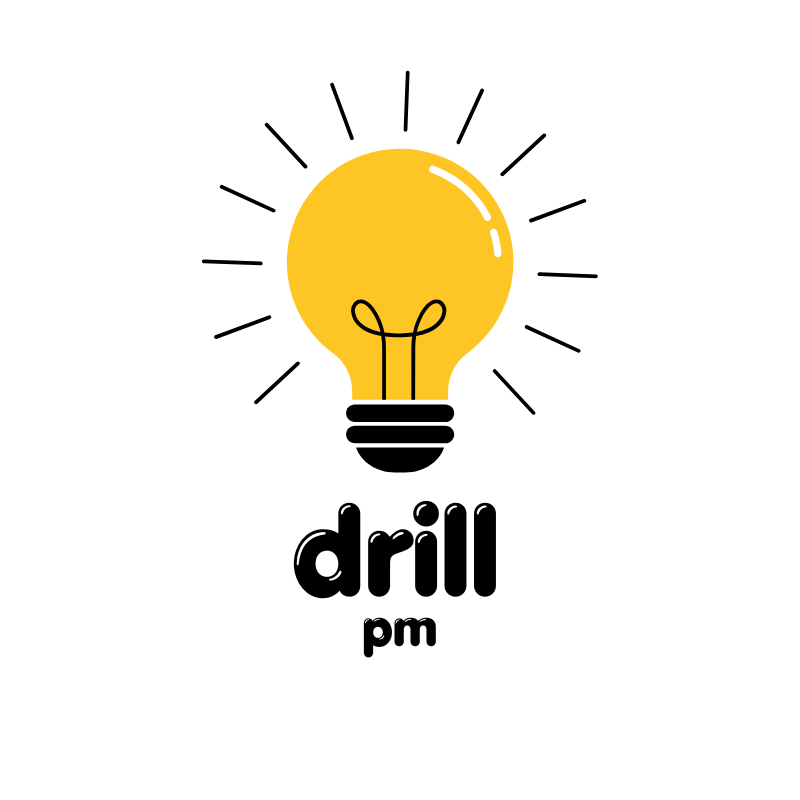Anúncios
Choosing a career is one of the most important decisions we make — and it’s not just a one-time thing. Whether you’re finishing high school or reconsidering your current job, understanding where the job market is heading can be a game changer. With technology evolving and new needs emerging, some professions are growing fast while others fade into the background.
In this fast-paced world, staying updated on market trends isn’t just smart — it’s essential. The careers in demand today are shaped by social change, global events, and digital transformation. Knowing what’s coming helps you make better, more confident choices.
If you’re wondering where to focus your energy — or simply curious about where the world is headed — this guide was made for you. It breaks down the most promising jobs for the next five years, explains the skills you’ll need, and offers practical advice for both students and career changers. Let’s dive in and explore the future of work together.
Why the job market is changing so fast
It’s no secret that the job market is evolving rapidly. Some of the jobs that existed just ten years ago are now outdated, while others we never imagined have become essential. But why is everything moving so fast?
One major factor is technology. From artificial intelligence to automation and remote work tools, tech is reshaping how companies operate and what they need from workers. At the same time, global issues like climate change and health care demands are creating brand-new roles.
Demographic changes also play a role. As the population ages, the need for health services and support systems grows. Likewise, younger generations are pushing for careers with more flexibility, purpose, and innovation. The result? A dynamic job market that rewards adaptability and forward-thinking.
What makes a profession “in demand”
Before diving into the list of top careers, it’s important to understand what “in demand” really means. It’s not just about having job openings — it’s about long-term viability and growth.
Here are a few key factors that define a high-demand profession:
- Projected job growth: Will there be more openings in the coming years?
- Competitive salary: Does the job offer good financial rewards?
- Stability: Is the industry resilient to economic shifts?
- Impact: Is it a profession that will remain relevant or become more critical?
When these factors combine, a profession becomes not only attractive but also strategic — especially if you’re just starting your journey or considering a bold career pivot.
Top 10 high-demand professions for the next 5 years
Let’s explore ten professions that are expected to grow significantly through 2030. These aren’t just jobs — they’re career paths with strong futures and real-world impact.
1. Data Analysts and Data Scientists
In a data-driven world, professionals who can gather, analyze, and make sense of information are essential. Whether in marketing, finance, healthcare, or logistics, data experts help companies make smarter decisions.
- Median salary: $100,910/year
- Why it’s growing: Explosion of big data, AI, and real-time analytics
- How to enter: Degrees in statistics, computer science, or data science; certifications like Google Data Analytics
2. Software Developers
From mobile apps to cloud systems, software developers build the digital tools we use every day. Their role is critical in almost every sector.
- Median salary: $124,200/year
- Why it’s growing: Tech innovation, cybersecurity needs, app-based services
- How to enter: Computer science degree, coding bootcamps, GitHub portfolios
3. Nurse Practitioners and Registered Nurses
Healthcare continues to be a reliable field, especially as the population ages and chronic conditions increase. Nurses play an irreplaceable role in patient care.
- Median salary: $81,220–$123,780/year
- Why it’s growing: Aging population, telehealth expansion, physician shortages
- How to enter: Nursing degrees, licensing exams (NCLEX), clinical experience
4. Cybersecurity Specialists
As digital threats rise, protecting data and networks has become a top priority. Cybersecurity experts are needed everywhere — from startups to government agencies.
- Median salary: $112,000/year
- Why it’s growing: More cyberattacks, remote work risks, strict regulations
- How to enter: Degrees in cybersecurity or IT, certifications (CompTIA Security+, CISSP)
5. Mental Health Counselors and Therapists
Society is becoming more open about mental health — and the demand for licensed professionals to provide support is growing fast.
- Median salary: $49,710–$78,700/year
- Why it’s growing: Mental health awareness, school and workplace programs
- How to enter: Psychology or counseling degrees, state licenses
6. Renewable Energy Technicians
Solar and wind energy are on the rise, and skilled technicians are needed to install, operate, and maintain these systems.
- Median salary: $47,000–$70,000/year
- Why it’s growing: Climate change policies, green tech incentives
- How to enter: Technical programs, on-the-job training, certifications
7. UX/UI Designers
Good design is no longer optional — it’s essential. UX (user experience) and UI (user interface) designers help create intuitive, accessible digital products.
- Median salary: $85,000–$110,000/year
- Why it’s growing: Digital services boom, focus on accessibility
- How to enter: Graphic design degrees, UI/UX certifications, portfolio work
8. Occupational and Physical Therapists
These professionals help people recover from injury or adapt to physical challenges, especially after surgery or aging-related issues.
- Median salary: $85,570–$95,620/year
- Why it’s growing: Aging population, increased need for rehab services
- How to enter: Health science degrees, state licensure
9. Digital Marketing Specialists
Marketing today is driven by algorithms, trends, and consumer behavior data. Digital marketers blend creativity with strategy to drive growth.
- Median salary: $65,000–$100,000/year
- Why it’s growing: Online commerce, social media, SEO/SEM
- How to enter: Marketing degrees, Google Ads/Facebook certifications, case studies
10. Skilled Trades (Electricians, Plumbers, HVAC Technicians)
Not all in-demand jobs require a four-year degree. Trades are booming — and many offer great pay, benefits, and job security.
- Median salary: $50,000–$75,000/year
- Why it’s growing: Infrastructure investment, housing demand
- How to enter: Apprenticeships, trade schools, licensing exams
Skills you’ll need to succeed in these professions
Beyond technical know-how, employers are also looking for a set of transferable soft skills that make candidates stand out. Here are some of the most in-demand skills:
- Critical thinking: Making decisions and solving problems effectively
- Communication: Explaining ideas clearly — both in writing and speech
- Adaptability: Embracing change and learning new tools quickly
- Teamwork: Working well with diverse people and across departments
- Emotional intelligence: Understanding your own emotions and others’
Hard skills still matter — like coding, data analysis, or project management — but soft skills often determine long-term success.
How to prepare: education and training options
Good news: you don’t always need a four-year degree to land a great job. Depending on the career path, there are many ways to prepare:
- College degrees: Ideal for careers in healthcare, engineering, or research
- Community colleges: Affordable programs for trades, tech, and health careers
- Bootcamps: Fast-track training for coding, UX design, data, and marketing
- Online certifications: Great for working professionals or self-learners
- Apprenticeships: Learn while you earn — common in skilled trades
The key is to choose a path that matches your goals, budget, and lifestyle. Flexibility is more important than ever, and many employers now value skills over titles.
Career tips for students and career changers
No matter where you’re starting from, here are some tips to help you move forward:
- Explore job platforms like LinkedIn or Glassdoor to discover trends and salaries
- Talk to professionals in your area of interest — ask questions, build connections
- Test the waters with internships, freelance gigs, or volunteer experiences
- Take one step at a time — don’t wait to have it all figured out
- Invest in yourself — time spent learning is never wasted
If you’re in high school, focus on building curiosity and foundational skills. If you’re changing careers, highlight your past experiences and how they apply to your new path.
The role of passion vs. opportunity
One of the most common questions is: Should I follow my passion or chase a stable job? The truth is, you don’t have to choose one over the other. The best careers often lie at the intersection of what you love and what the world needs.
Passion keeps you motivated. Opportunity gives you stability. When you find a career that blends both — even if it takes time — you’re more likely to thrive.
If your dream job isn’t in high demand, that’s okay too. You can build side projects, grow your network, and eventually create your own space. The key is to stay flexible and open-minded.
Final thoughts
The future of work is full of possibilities — and it belongs to those who prepare for it today. Whether you’re choosing your first career or starting over, there are more resources, options, and paths than ever before.
Focus on growing your skills, staying informed, and taking intentional steps. You don’t need to have all the answers right now — you just need to start moving in the right direction.
FAQ
1. What jobs are most future-proof?
Jobs in healthcare, technology, and renewable energy are considered some of the most stable and resistant to automation.
2. Can I switch careers without going back to college?
Yes! Many people reskill through online courses, bootcamps, or certifications. What matters most is demonstrating competence.
3. What’s the fastest-growing job in the U.S. right now?
According to the U.S. Bureau of Labor Statistics, wind turbine technician and nurse practitioner roles are growing rapidly.
4. How can I know if a career is right for me?
Start by researching the role, talking to professionals in the field, and testing with small projects or internships.
5. Is it too late to change careers in my 30s or 40s?
Absolutely not. Many people find their most fulfilling careers later in life. With the right mindset and planning, it’s very possible.



